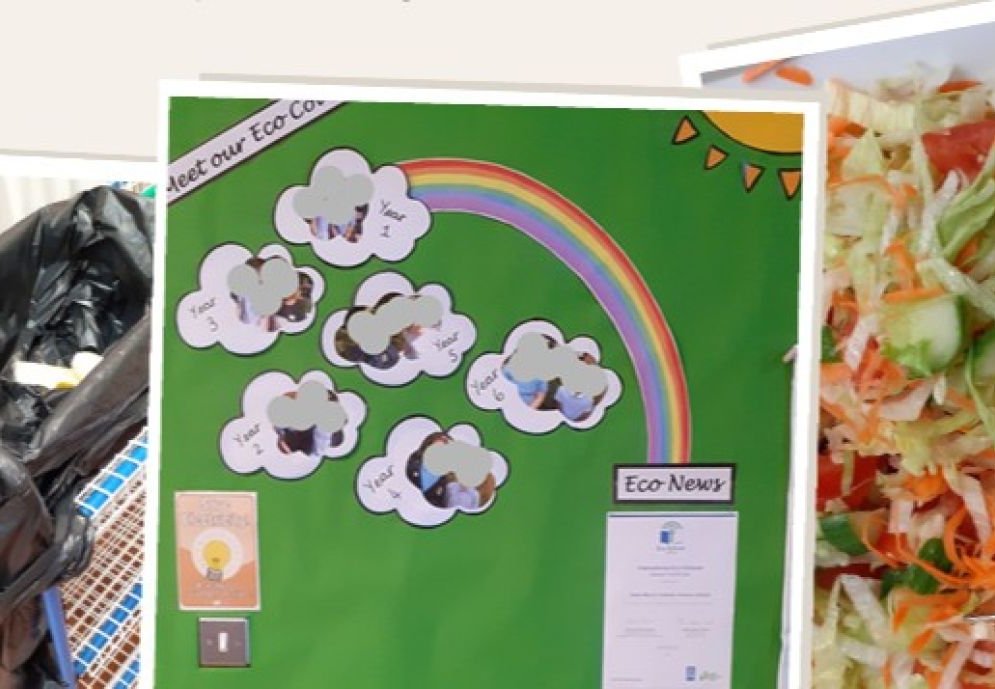

Inspiring Eco Warriors
Food waste reduction
Project summary
Setting up an action group of eco-warriors to instigate change in your school.
Learning outcome
Follow the example of The Eco Warriors at St Mary’s Catholic Primary School, located in the heart or Loughborough’s diverse city centre, UK. They have been empowered by school leadership to inspire their peers, improve school lunches, and reduce waste. A group of pupils with a passion for change noticed a lot of food and packaging waste. The Eco Warriors, as they later named themselves, could see there was a better way.
- Students will develop an understanding of environmental conservation and waste reduction.
- Students will learn to collaborate and communicate effectively to initiate positive change.
- Students will gain practical experience in monitoring and managing food waste..
Time required
- Initial Setup: 1-2 hours
- Ongoing Monitoring and Reporting: 15-30 minutes daily
- Weekly Assembly Presentations: 10-15 minutes per assembly
Tools or equipment
- Camera or smartphone for taking photos
- Display board for photos in the dining hall
- Compost bins and sorting compartments
- Reusable water bottles and cups
- Survey materials (paper or digital)
- Garden tools for growing vegetables
- Positive stickers for reward system
Activity description
Initial observation and problem identification:
- Form a group of students passionate about environmental issues, named the Eco Warriors.
- Observe and document food and packaging waste in the school dining area.
Raising awareness:
- Take daily photos of the bin and display them in the dining hall to highlight the scale of the waste problem.
- Present findings weekly during school assemblies to educate and engage the entire student body.
Engaging the community:
- Write a letter to parents, signed by the Deputy Headteacher, explaining the initiative and encouraging the use of reusable bottles and better lunchbox contents.
- Implement changes such as using jugs and reusable cups for milk and composting fruit snack waste on-site.
Promoting school meals:
- Conduct a survey each term to identify students' favorite vegetables and ensure these are included in school meals.
- Work with the catering team to use produce grown in the school garden, including herbs for daily meals.
Monitoring and rewarding
- Spend lunchtimes checking food waste and rewarding students who finish their vegetables with positive stickers.
- Continuously monitor school bins, aiming to reduce the size and improve sorting of compostable waste.
Tips how to implement the topic to school curriculum
Science and Environmental Studies:
- Integrate the initiative into lessons on ecosystems, sustainability, and the environmental impact of waste.
- Use the school's garden as a practical example to teach about plant growth, nutrition, and composting.
Mathematics:
- Analyse data from food waste monitoring and surveys to teach statistics and data representation.
English:
- Encourage students to write reports, letters, and presentations about their activities and findings.
- Incorporate persuasive writing exercises based on their campaign to reduce waste.
Social Studies:
- Discuss the broader social and environmental implications of waste and the importance of community action.
Health and Nutrition:
- Educate students about the benefits of nutritious school meals and reducing food waste for overall health.
